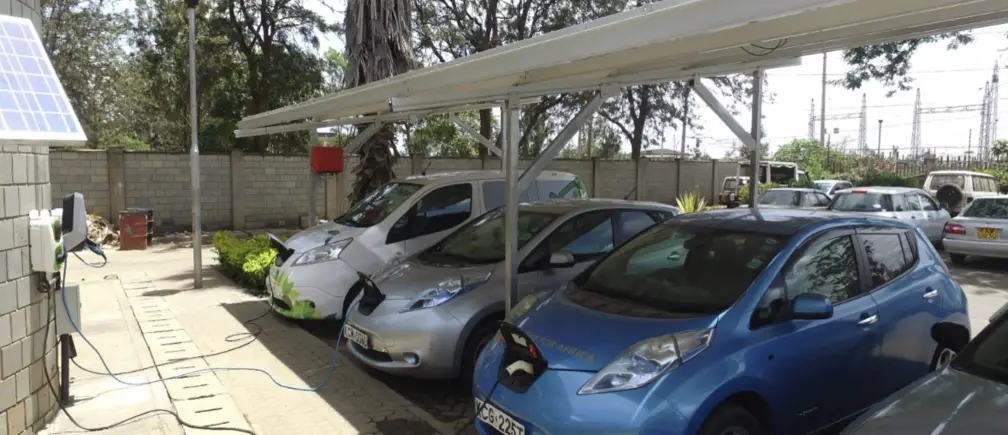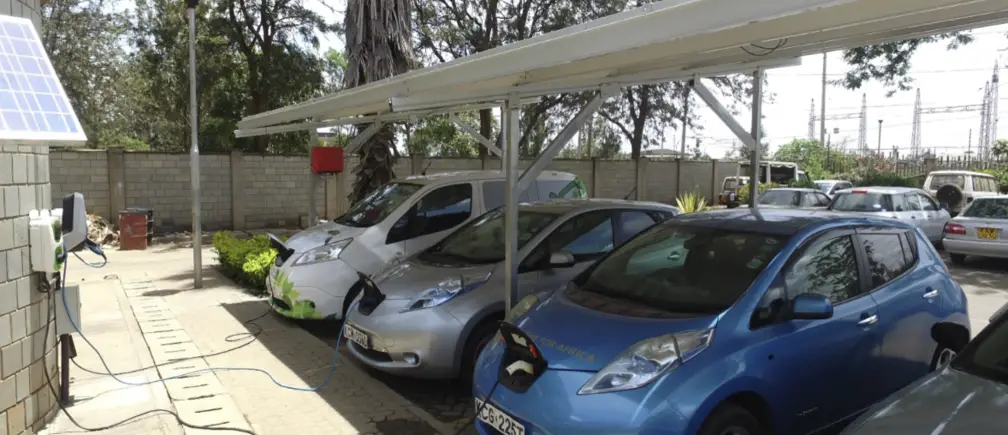How Electric Vehicles could electrify Africa.
The revolution has begun in Africa with few startups coming up with electric taxis, motorcycles, and some locally converting ICEs to EVs. In February, Kenya-based ARC Experience launched electrical two- and three-wheelers for Uber Eats


The revolution has begun in Africa with few startups coming up with electric taxis, motorcycles, and some locally converting ICEs to EVs. In February, Kenya-based ARC Experience launched electrical two- and three-wheelers for Uber Eats deliveries in Nairobi, a metropolis of 4.4 million. Whereas the corporate at present has 35 automobiles working, Chief Govt a former environmental activist in Nigeria, says he expects the fleet to develop to 300 by August. ARC is also constructing its charging community throughout town fed by thermal power generated from volcanic warmth alongside East Africa’s tectonic rift.
Electric bikes are becoming most common because it's the easy option to promote cheap, clean-energy transportation in Africa, the place roads are sometimes traffic-clogged and potholed. The ARC executive hopes that their efforts in Nairobi shall be a launchpad for a broader enlargement all through Africa—akin to how the mobile telecommunications revolution bypassed wired strains in lots of areas.
ARC’s chairman is Johannesburg-based retired funding banker head of sustainability for the United Nations Atmosphere Program, or UNEP, says that “two- and three-wheelers are the low-hanging fruit” of EVs mobility in Africa. UNEP is funding EVs initiatives in seven African international locations. “The potential leapfrog is very large,” says Mr. de Jong, who relies on Nairobi.
From Nairobi to Cape City to Lagos, most individuals depend on bikes, minibuses, and vans to get around. In Kigali, Rwanda, a metropolis of roughly 1.2 million, there are extra bikes than there are yellow cabs in New York Metropolis. Bikes make up greater than half of all automobiles on the street in Kigali.
Bikes and utility automobiles of every type signify the fastest-growing phase of the African automotive market. Gross sales of each electrical and conventional two- and three-wheeler in Africa will bounce 50% by 2050, per UNEP.
In Kenya, the company says, bikes are set to greater than triple to 5 million this decade in contrast with 2018. The purchases shall be pushed largely by companies, together with EV startups like ARC, that purchase the automobiles after which lease or hire them to drivers. Purchases by people, particularly of e-motorcycles, which are usually costlier than nonelectric fashions, are extra uncommon in Africa due to low incomes and scarce credit score mechanisms.
Most bikes at present on the street are inclined to run on fossil gas, which is costlier, and extra polluting, than electrical energy. Gas and upkeep prices for electrical automobiles are as a lot as 40% inexpensive on a per-mile foundation than the fossil-fuel equal.
In Kigali, in the meantime, e-motorcycle service Ampersand, which launched two years in the past, at present has 200 automobiles doing taxi and supply work. The corporate’s founder, Josh Whale, a New Zealander and former intellectual-property lawyer, says the startup has a ready listing of greater than 7,000 requests for added bikes. Ampersand has obtained funding from quite a lot of worldwide sources, together with $1 million from the nonprofit basis of oil big U.S., British, and New Zealand authorities companies have supplied funds as effectively. And in March, San Francisco-based clean-tech venture-capital agency Ecosystem Integrity Fund invested $3.5 million.
Multinationals in transportation even have taken discover of Africa’s EV potential. An organization known as Mellow cabs, based mostly in Stellenbosch, South Africa, and whose clients embody Germany’s Deutsche Put up DHL Group, operates some 60 EVs light-duty supply automobiles in South Africa, Botswana and Namibia. And in Nigeria, Japan took half in a $7 million funding spherical for electrical motorbike taxi and supply firm MAX.NG. The startup, whose traders additionally embody Nairobi-based enterprise capitalist Novastar Ventures Ltd., says it’s on observation to launch 1,000 such automobiles in Nigeria, Africa’s most populous nation, by the tip of 2021. A-MAX spokesman says it prices 50% much less to recharge its automobiles in Nigeria than it will to gas gasoline engines.
Electrical automobiles provide poor communities in Africa not solely a shot at cleaner air however financial alternatives as effectively. In Kigali, Ampersand driver 30, says his month-to-month revenue has jumped 42%, to around $300, since he switched from the fossil-fuel motorbike he used as an expert driver final 12 months to the electrical mannequin he now leases. Many of the financial savings are a consequence of decrease power prices but in addition decrease upkeep bills for e-motorcycles.
Whereas jobs like these provided by ARC, MAX, and Ampersand can roughly double a supply driver’s revenue, there are additional potential features for the setting, as a result of the recharging infrastructure for EVs in Africa depends totally on renewable energy similar to geothermal, photovoltaic and hydro. In India and China, in contrast, the energy-production provide chain that sustains electrical automobiles nonetheless depends on carbon-heavy coal.
Ampersand says its automobiles signify a total discount of as a lot as 95% within the carbon footprint of supply automobiles in contrast with people who use fossil gas. Many of the platforms in Africa use socket-based chargers for their automobiles. However, amid frequent energy outages, they’ve to search out artistic methods to ensure regular provide.
In Nairobi, the place ARC says electrical energy prices for its drivers are 30% decrease than for gas on a per-mile foundation, the corporate has labored with logistical associate Sendy to arrange chargers within the warehouses of its major supply clients, so drivers can choose up electrical energy in addition to items. ARC is within the technique of organizing photovoltaic panels to make sure the charging community operates independently from the grid, Mr. Hurst-Croft says.
MAX and Ampersand provide their drivers pre-charged, swappable batteries. The latter is in talks with main oil corporations to start out inserting depots for these batteries at gas stations in East Africa, per Mr. Whale, the founder. Mr. Namahro, the Ampersand driver, says using an electrical motorbike got here with points when it got here with entry to electrical energy. At first, the motorbike batteries would run out shortly, he says. However present fashions, he provides, now allow about 50 miles—sufficient to cowl a day. Mr. Namahro says his causes for utilizing an e-motorcycle embody the environmental advantages for the subsequent era.




